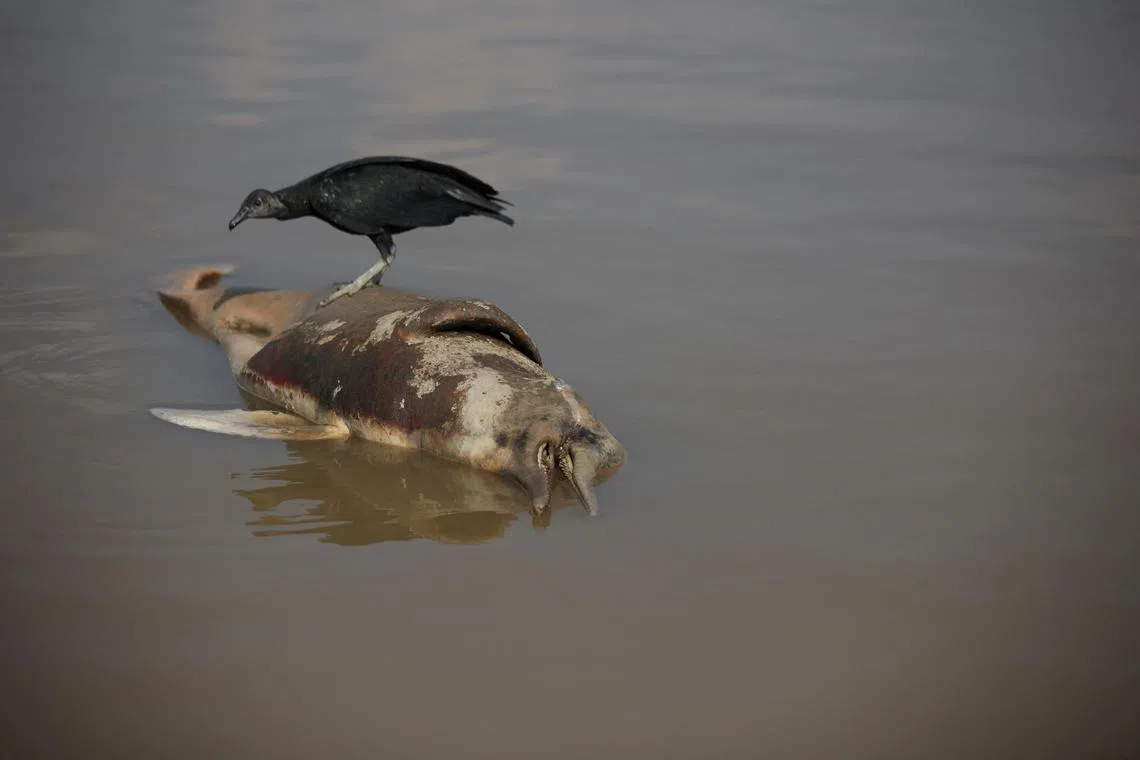10% of dolphins in lake killed amid Amazon drought: Study
Sign up now: Get ST's newsletters delivered to your inbox

Rescue teams found 153 dolphins dead in Lake Tefe, where water temperatures breached the average maximum.
PHOTO: REUTERS
RIO DE JANEIRO – An estimated 10 per cent of the dolphins in a picturesque lake in the Brazilian Amazon were killed in a week as a record drought and searing temperatures
Emergency teams found 153 dolphins dead in the last week of September in Lake Tefe, where water temperatures reached 39.1 deg C, more than 7 deg C higher than the normal maximum, according to the Mamirau Institute for Sustainable Development (IDSM) and environmental group WWF-Brasil.
The lake is located in the drought-hit northern state of Amazonas, at the spot where the Tefe river empties into the Amazon, in the heart of the world’s biggest rainforest.
Researchers reported 130 pink dolphins and 23 tucuxi dolphins killed. Both are listed as species with declining populations by the International Union for Conservation of Nature (IUCN).
Huge numbers of fish have also died off, they said.
“What’s happening in Lake Tefe is staggering. The impact of losing these animals is enormous and affects the entire local ecosystem,” said Dr Mariana Paschoalini Frias, conservation specialist at WWF-Brasil.
“Dolphins are considered ‘sentinels’. They’re indicators of the health of their environment. What’s happening to them is reflected in other species, as well, including humans,” she said in a statement.
Besides killing fish and dolphins, the drought has dramatically reduced river levels, devastating a region that relies on its labyrinth of waterways for transportation and basic needs.
The federal government has sent emergency aid to the stricken region, where normally bustling river banks have turned to eerie, dessicated landscapes dotted with stranded boats.
Experts say the Amazon dry season has been worsened this year by the El Nino warming phenomenon.

A researcher from the Mamiraua Institute for Sustainable Development retrieves dead dolphins from Tefe lake, on Oct 2.
PHOTO: REUTERS
Environment Minister Marina Silva has also blamed “uncontrolled climate change”.
In state capital Manaus, located at the junction of the Amazon and Negro rivers, the authorities reported that the water level at the city’s port reached its lowest level in 121 years
The Negro’s water level stood at 13.49m, the lowest since records began in 1902, port officials said.
Heavy smoke from forest fires has also engulfed Manaus in recent days, forcing the cancellation of the city’s marathon last Sunday. AFP


